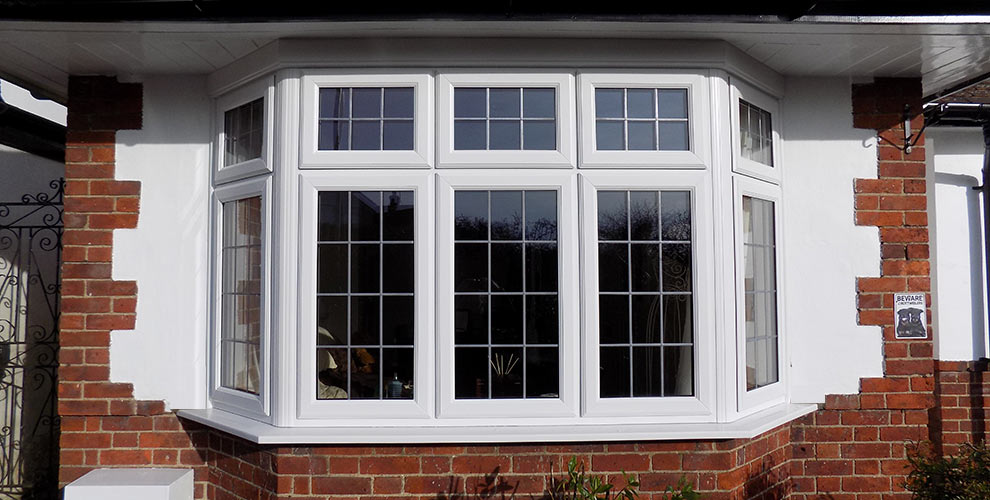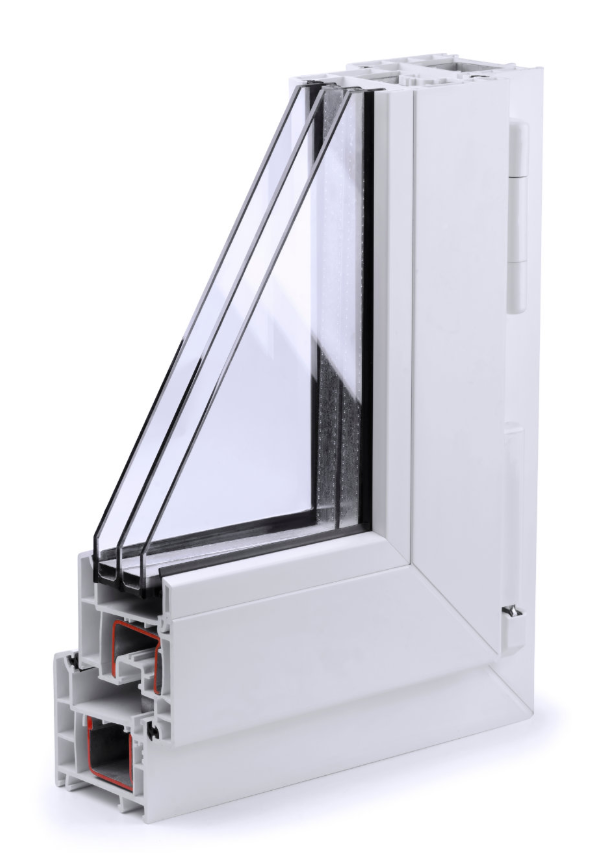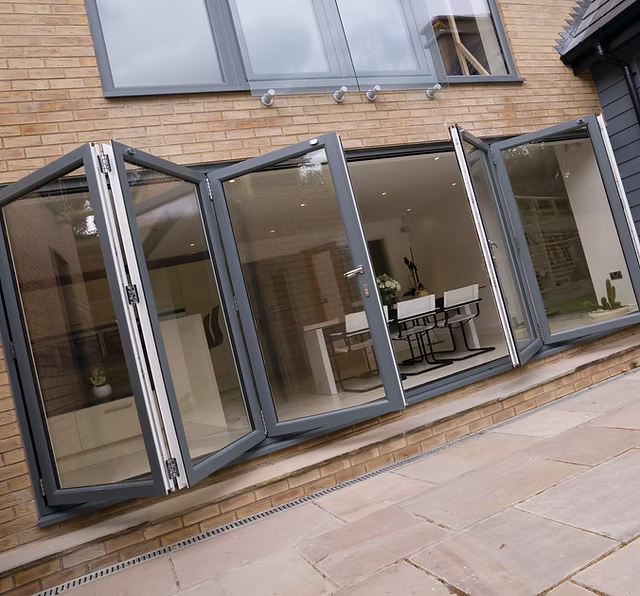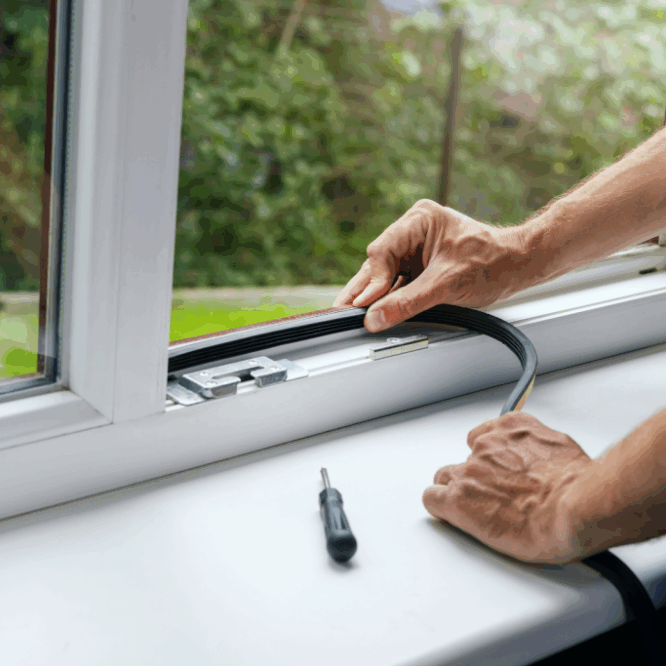Double Glazing Windows: Benefits, Costs & Smart Choices for a More Efficient Home
Thinking about upgrading your windows? Double glazing is one of the best improvements you can make for comfort, energy savings, and noise reduction. Whether you’re renovating or building from scratch, modern double-glazed windows offer a perfect blend of style and performance.
This guide breaks down how double glazing works, its key benefits, what materials to consider, and how to choose the best option for your home.

What Are Double Glazing Windows?
Double glazing (also known as insulated glazing) uses two panes of glass instead of one. These panes are separated by a sealed gap—often filled with argon or krypton gas—to reduce heat transfer and improve insulation.
Fun fact: The U.S. Department of Energy reports that double glazing can cut heat loss through windows by 25–50%.
Why More Homeowners Are Choosing Double Glazing
Here’s what makes double-glazed windows such a smart upgrade:
✅ Better Energy Efficiency
They help keep warm air inside during winter and reflect heat during summer—leading to lower energy bills all year long.
✅ Less Outside Noise
Live near a busy street or noisy neighbors? Double glazing can cut outside noise by up to 60%.
✅ Improved Security
With two panes of glass, these windows are much harder to break—offering better protection against intruders.
✅ Less Condensation
The sealed space between the panes keeps moisture down, helping prevent mold or damp issues.
✅ Higher Home Value
Energy-efficient windows are a big plus for buyers and can boost resale value.

Single vs. Double Glazing: What’s the Difference?
| Feature | Single Glazing | Double Glazing |
|---|---|---|
| Panes of Glass | 1 | 2 |
| Insulation | Low | High |
| Noise Reduction | Minimal | Excellent |
| Initial Cost | Lower | Higher (but saves long-term) |
| Security | Basic | Improved |
| Condensation Control | Poor | Good |
| Energy Savings | Minimal | 20–30% yearly savings |
Types of Double Glazed Windows
Your window choice should match your space, style, and ventilation needs. Here are the most common styles:
1. Casement Windows
- Hinged at the side and open outward.
- Great for airflow and easy to clean.
- A classic pick for most rooms.
2. Tilt & Turn Windows
- Dual-function: tilt open for ventilation or swing in for full access.
- Perfect for upper floors and tight spaces.
3. Sash Windows
- Slide vertically—ideal for traditional homes.
- Maintain a classic look with modern efficiency.
4. Fixed (Picture) Windows
- Don’t open but offer large, uninterrupted views.
- Extremely energy-efficient and low maintenance.

Frame Material Options: Which One’s Best?
| Material | Energy Efficiency | Cost | Maintenance | Look |
|---|---|---|---|---|
| uPVC | High | Low | Very Low | Clean, modern |
| Wood | High (if sealed) | High | Moderate | Warm, traditional |
| Aluminum | Moderate | Moderate | Low | Sleek, contemporary |
| Composite | Very High | High | Low | Premium and durable |
Tip: Go for Low-E glass and argon-filled panes for the best thermal performance.
How Much Does Double Glazing Cost?
Costs vary depending on the material, window style, and installation complexity. Here’s a general breakdown:
| Window Type | Estimated Cost (Installed) |
|---|---|
| uPVC Casement | $300 – $600 |
| Wood Frame Sash | $700 – $1,200 |
| Aluminium Tilt & Turn | $500 – $900 |
| Fixed Picture Window | $400 – $800 |
Based on HomeAdvisor’s 2024 national averages.
Common Questions About Double Glazing
How long do double-glazed windows last?
Typically 20 to 35 years. uPVC tends to last the longest with the least upkeep.
Can I upgrade my old single-pane windows?
Yes! Many installers offer retrofit options, especially for older wood or heritage-style frames.
Are they worth the cost?
Absolutely. Most homeowners see a return on their investment within 5–7 years through energy savings and increased comfort.
Will double glazing completely block noise?
Not completely, but it can significantly reduce outside noise—especially with acoustic or laminated glass options.
Does it help in warmer climates too?
Yes. It keeps heat out in the summer and cool air in, which reduces your need for air conditioning.
Final Thoughts
Double glazing isn’t just a window upgrade—it’s a lifestyle upgrade. You’ll enjoy a quieter, more comfortable, and energy-efficient home year-round. And with a range of frame styles and materials available, it’s easy to find an option that suits your aesthetic and budget.
Before you buy, be sure to check NFRC ratings and look for ENERGY STAR–certified products for the best performance.
Need help choosing the right double glazing for your home? Talk to a certified window installer or explore resources like the Efficient Windows Collaborative to make the most informed decision.

